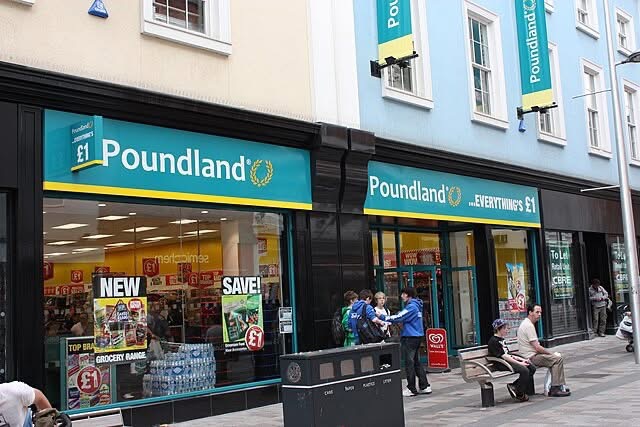Poundland has narrowly avoided administration after a High Court judge approved an emergency restructuring plan on Tuesday afternoon, just days before the discount retailer was due to run out of cash.
Sir Alastair Norris sanctioned the rescue deal at the Rolls Building in London, injecting up to £60 million ($81 million) in new funding to keep the struggling chain afloat. The approval came with the company’s lawyers warning it would enter administration by Friday and exhaust its cash reserves by 7 September without judicial intervention.
“I am going to sanction the plan. I will give my reasons later,” Sir Alastair told the court, delivering a lifeline to approximately 14,700 staff and securing the immediate future of hundreds of stores across Britain.
The dramatic rescue comes less than three months after Poundland was sold by Polish parent Pepco Group to US investment firm Gordon Brothers for just £1 in June. The symbolic price tag reflected the depth of the retailer’s financial crisis, with the company posting a pre-tax loss of £35.7 million in the 2024 financial year.
Under the court-approved restructuring, Poundland will receive a £30 million overdraft facility and see its £276.5 million loan repayment deadline pushed back from 1 September to 2028. The plan also includes significant rent reductions across its estate, with barrister Tom Smith KC telling the court that many stores “are unprofitable at their current rents”.
The latest liquidity forecast shows that the group will run out of cash in the week ending September 7 2025,” Smith warned the court, adding that directors would likely place the company into administration by Friday without approval.
Barry Williams, Poundland’s managing director, welcomed the decision but acknowledged its human cost. Today’s decision is vitally important for Poundland, allowing us to stabilise the business, securing the future of hundreds of stores and thousands of jobs,” he said.
We’d like to thank the court, and the engagement of our creditors, throughout this process. Despite the opportunity this ruling provides, I’m extremely mindful of its consequences for our colleagues, especially those leaving us as we streamline our store estate, distribution network and support teams.
The restructuring follows Poundland’s announcement in June that it would shut 68 stores, affecting around 1,000 staff. The company has already closed 37 locations this month alone, with another 11 stores including branches in Blackburn, Kettering and Taunton set to close on Sunday. A further store in Irvine, North Ayrshire, will shut on 14 September, whilst 16 additional closures are planned but not yet confirmed.
The retailer will also close its frozen and digital distribution site at Darton, South Yorkshire, later this year and another warehouse at Springvale in Bilston, West Midlands, early next year, cutting a further 350 jobs.
In court submissions, Smith attributed Poundland’s decline to strategic missteps and rising costs. “The group was performing well prior to and during the Covid-19 pandemic,” he explained. However, the business has struggled in the last two years in an increasingly challenging UK retail environment.”
He said the company’s attempts to broaden its offering by adding chilled and frozen products and introducing online sales had backfired. “These changes increased operating costs, as did increases in the UK national living wage and employer national insurance contributions.”
The barrister confirmed “a very significant amount of new money” would flow into the company through the restructuring plan, stating: “The plan will release a further £60 million of funding, and that is in addition to the £30 million that has already gone in following the purchase that took place on June 12.
Founded by Willenhall father and son market traders Keith and Steve Smith, along with fellow trader Dave Dodd, Poundland opened its first store in Burton upon Trent on 13 December 1990. The chain grew to become a high street fixture with around 800 stores before being acquired by Pepco in 2016.
However, the retailer has struggled since the pandemic, facing intense competition from rivals B&M, Home Bargains and The Range, as well as budget supermarkets and the rise of online shopping.
The restructuring does not cover Poundland’s operations in the Republic of Ireland and the Isle of Man, where it trades as Dealz. Notably, no creditors appeared in court to oppose the plan’s approval.
Williams struck an optimistic tone about the future, saying: “Nevertheless, our wider attention must now turn to getting Poundland back to growth. In the coming weeks we will focus on getting us back on track, revamping ranges, lowering prices and creating the simpler and more focused Poundland we know our customers are eager for us to deliver.”
The rescue marks a crucial moment for Britain’s discount retail sector, with Poundland’s survival preserving thousands of jobs and maintaining a familiar presence on struggling high streets across the country.
Follow for more updates on Britannia Daily



